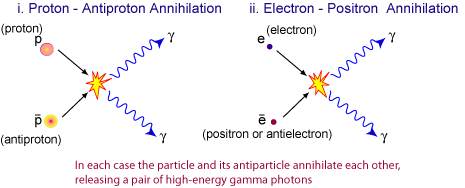Does dark matter have practical application?
Yesterday, my good friend Brian wrote an excellent commentary on space exploration, in which he describes the economic effect of space research on the economy, as well as on our knowledge and understanding of the Earth, its environment and the possibility of preventing threats. And for the study of the solar system and other systems it is really beautiful.
But what would we do before that? After all, this is not what I study. Therefore, I asked:
Practical arguments for space exploration contain quite a lot of water. But if you follow their logic, then what I do - the search for dark matter, the study of dark energy, the processes of star formation, fate and the birth and evolution of the Universe - are absolutely useless things. Of course, an understanding of the Universe brings an understanding of our role and our place in it, but is there a practical application of this knowledge and various areas not connected with us?
')
And I began to think - is there a practical benefit in the long term from studying dark matter? Well, the most effective and affordable, according to the amount of matter, the method of obtaining energy is nuclear fusion - this process occurs, in particular, on the Sun. 4 hydrogen nuclei merge into one helium nucleus and emit 25 MeV of energy per helium nucleus. The efficiency of the process is 0.7%: this percentage of the kilogram of hydrogen involved in the synthesis becomes pure energy. Is there anything more efficient? Of course: if you push the nucleus of hydrogen (also known as a proton) with its antiparticle (antiproton), the reaction will be 100% effective!

This is true for all particles and their antiparticles: if you push them together, you get 100% pure energy at the output. There is very little antimatter in the universe, and it would be very detrimental to a spacecraft — it would annihilate any matter with which it came into contact!
But dark matter, which does not interact with anything (and definitely does not annihilate), is a special case. All realistic models of dark matter, known to us, claim that it has a special property: dark matter is an antiparticle for itself! And in the universe of dark matter is full. If we could figure out how to collect and collide particles of dark matter, we would have a source of energy with 100% efficiency, with virtually unlimited. Dark matter in the universe is 5 times easier to find than normal.
Is it far from today's realities? And how. But in the long run, would it be the most efficient source of energy? Let's think - 100% efficiency ... Well, still! And this is the most practical thing I can think of for dark matter. I am sure that to spread this idea and introduce it into the imagination of the masses will require good fiction.
But what would we do before that? After all, this is not what I study. Therefore, I asked:
Practical arguments for space exploration contain quite a lot of water. But if you follow their logic, then what I do - the search for dark matter, the study of dark energy, the processes of star formation, fate and the birth and evolution of the Universe - are absolutely useless things. Of course, an understanding of the Universe brings an understanding of our role and our place in it, but is there a practical application of this knowledge and various areas not connected with us?
')
And I began to think - is there a practical benefit in the long term from studying dark matter? Well, the most effective and affordable, according to the amount of matter, the method of obtaining energy is nuclear fusion - this process occurs, in particular, on the Sun. 4 hydrogen nuclei merge into one helium nucleus and emit 25 MeV of energy per helium nucleus. The efficiency of the process is 0.7%: this percentage of the kilogram of hydrogen involved in the synthesis becomes pure energy. Is there anything more efficient? Of course: if you push the nucleus of hydrogen (also known as a proton) with its antiparticle (antiproton), the reaction will be 100% effective!

This is true for all particles and their antiparticles: if you push them together, you get 100% pure energy at the output. There is very little antimatter in the universe, and it would be very detrimental to a spacecraft — it would annihilate any matter with which it came into contact!
But dark matter, which does not interact with anything (and definitely does not annihilate), is a special case. All realistic models of dark matter, known to us, claim that it has a special property: dark matter is an antiparticle for itself! And in the universe of dark matter is full. If we could figure out how to collect and collide particles of dark matter, we would have a source of energy with 100% efficiency, with virtually unlimited. Dark matter in the universe is 5 times easier to find than normal.
Is it far from today's realities? And how. But in the long run, would it be the most efficient source of energy? Let's think - 100% efficiency ... Well, still! And this is the most practical thing I can think of for dark matter. I am sure that to spread this idea and introduce it into the imagination of the masses will require good fiction.
Source: https://habr.com/ru/post/396467/
All Articles